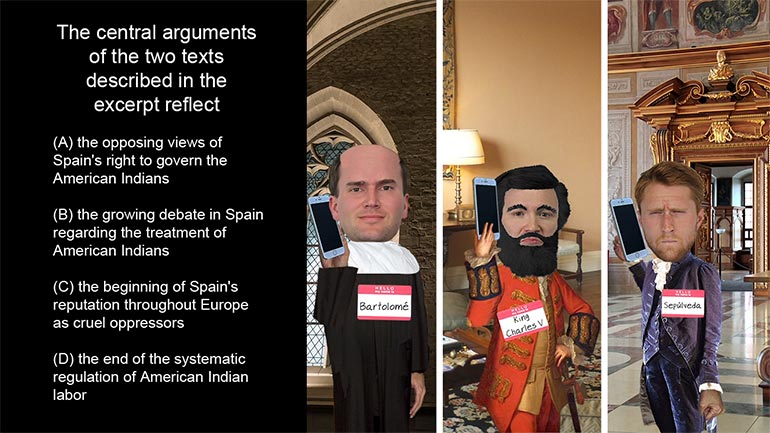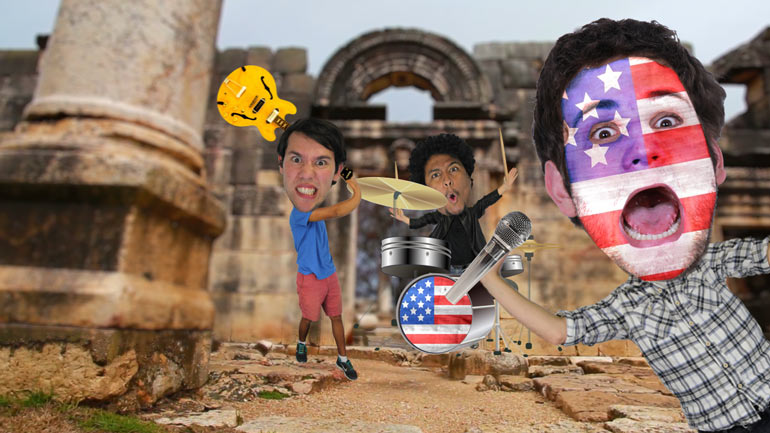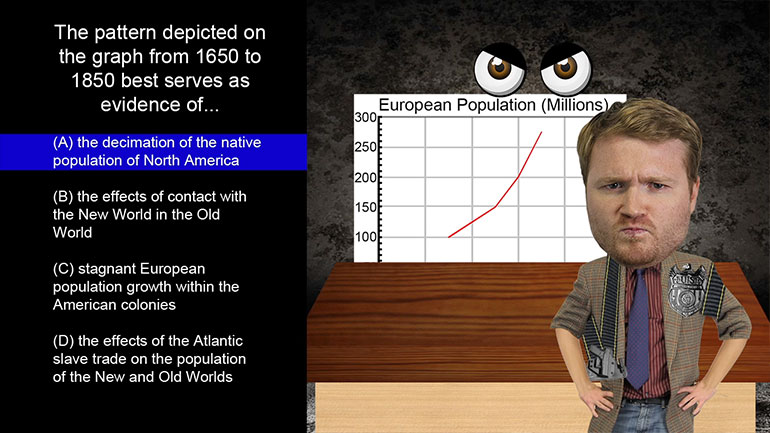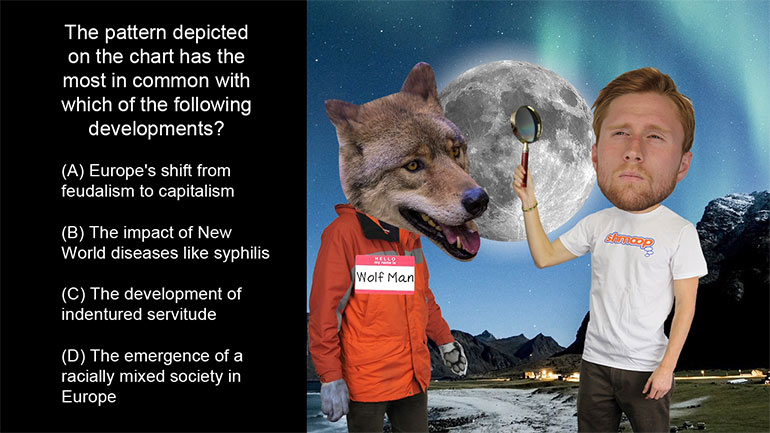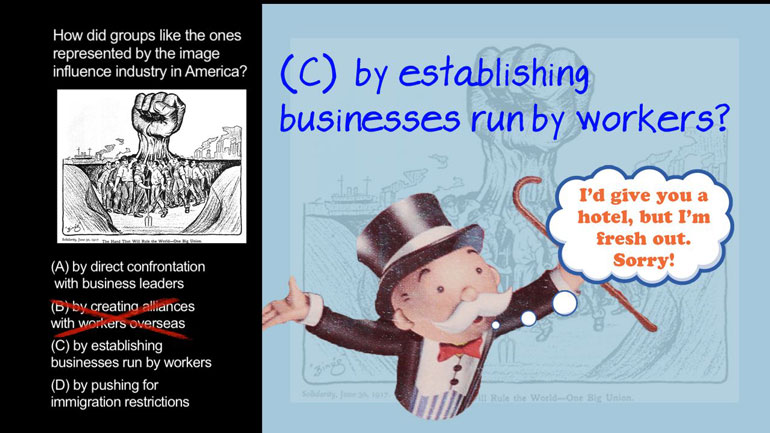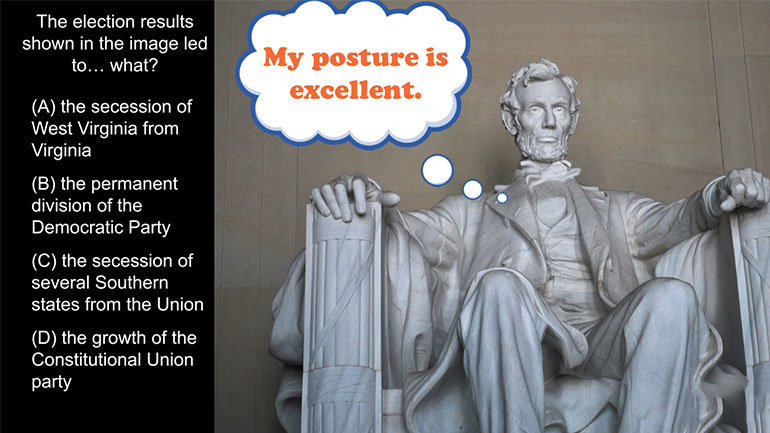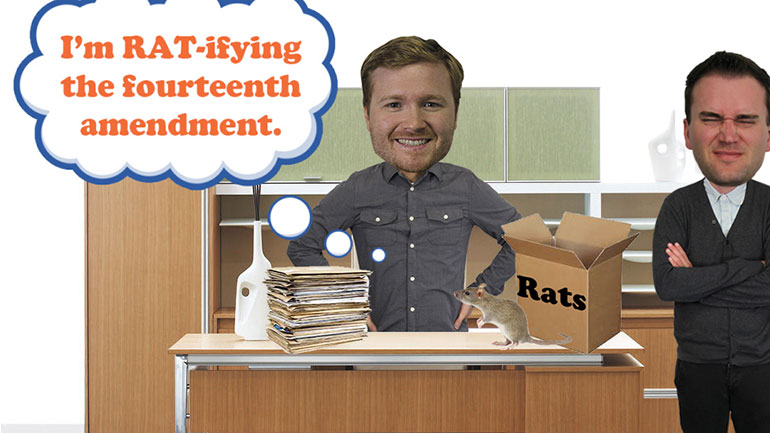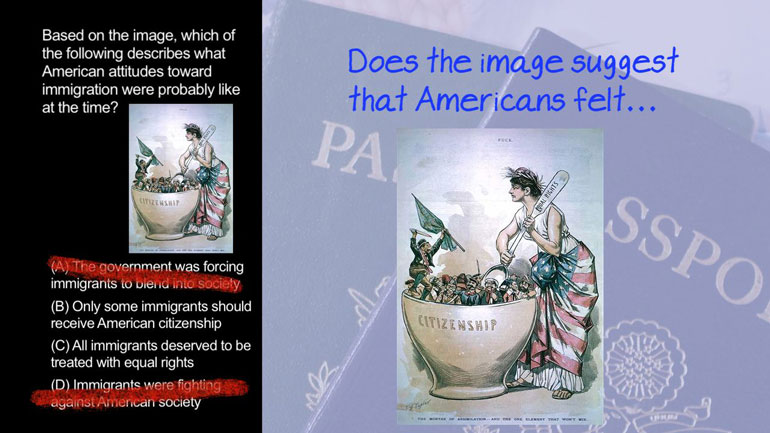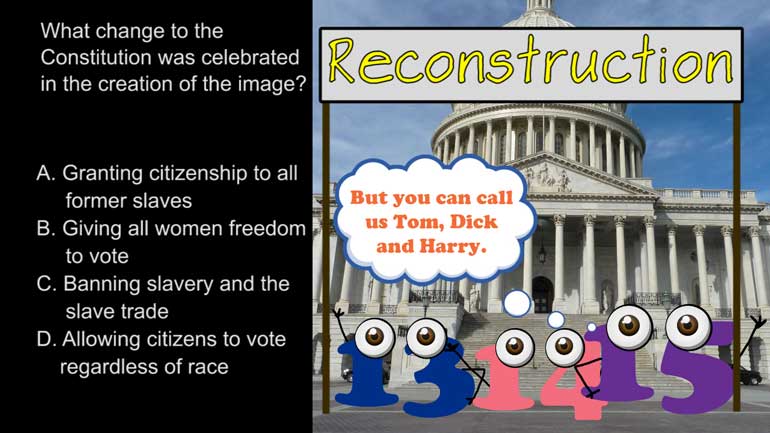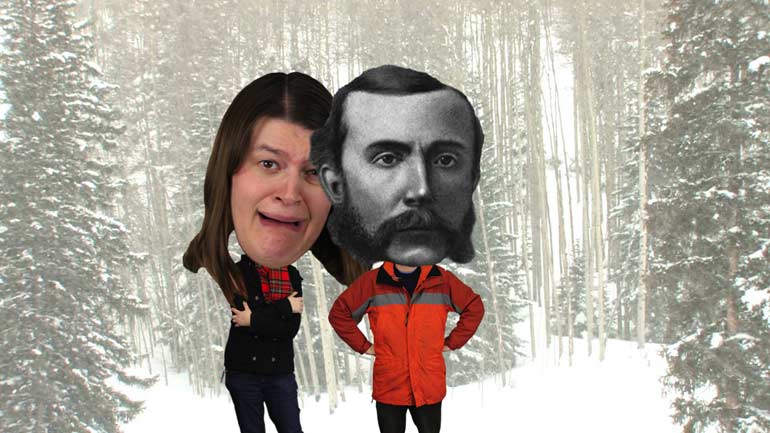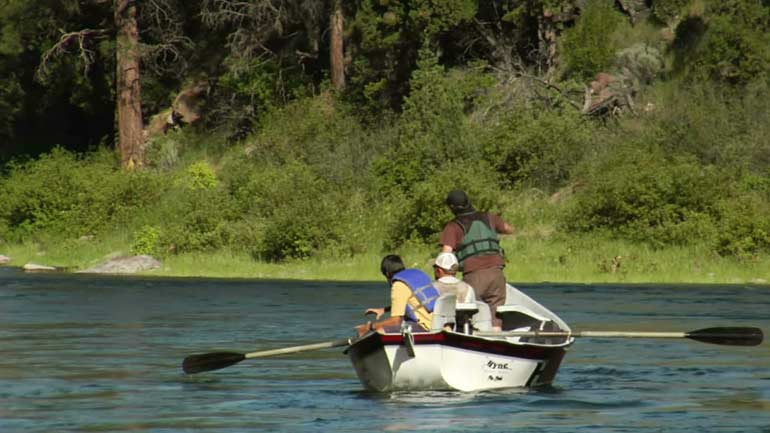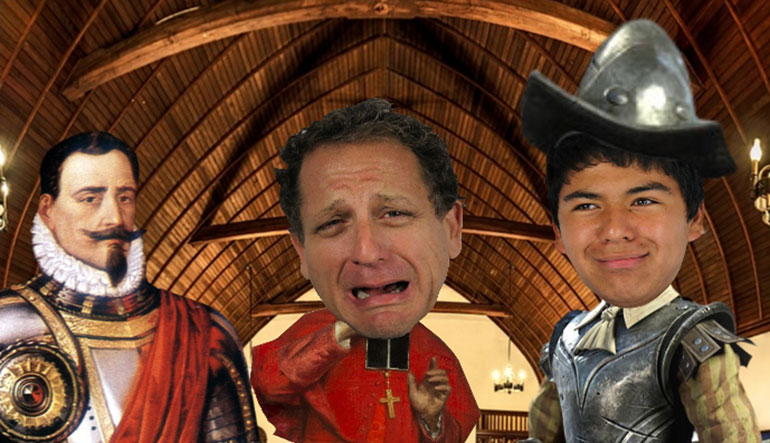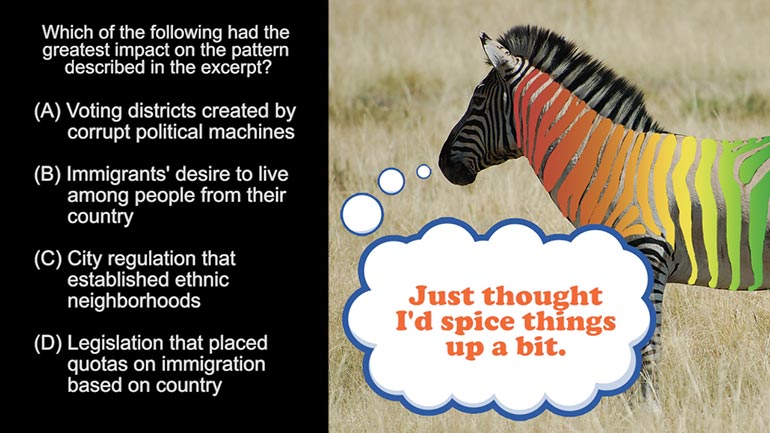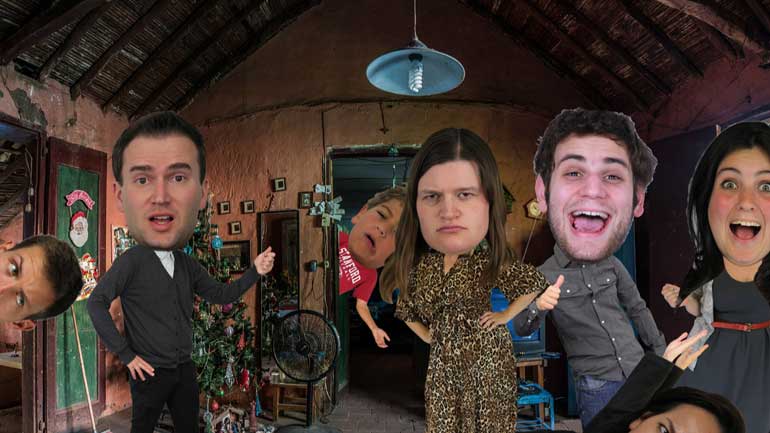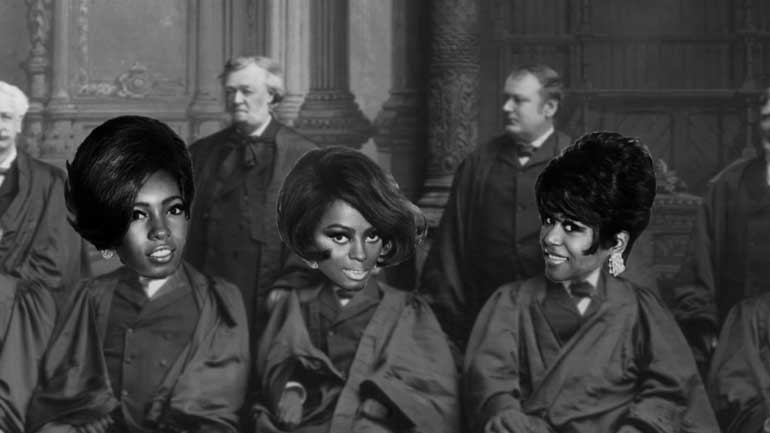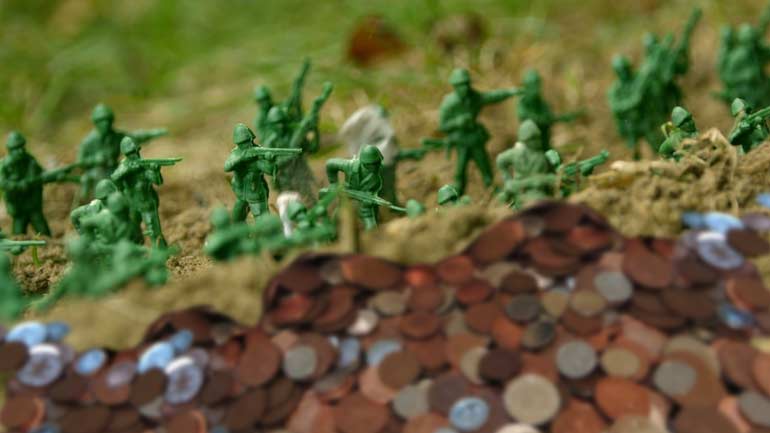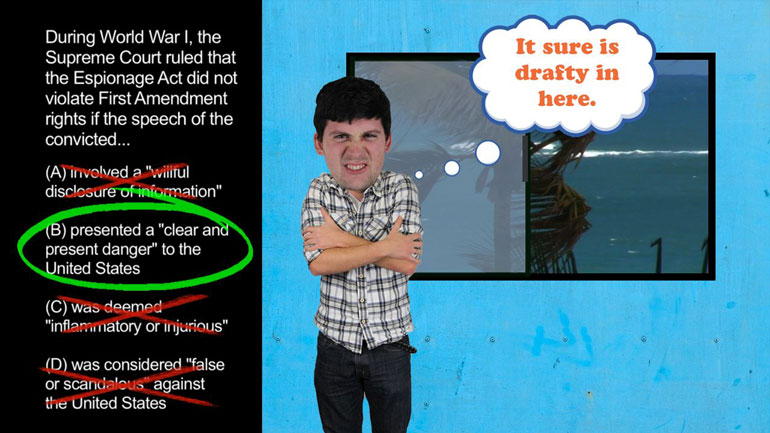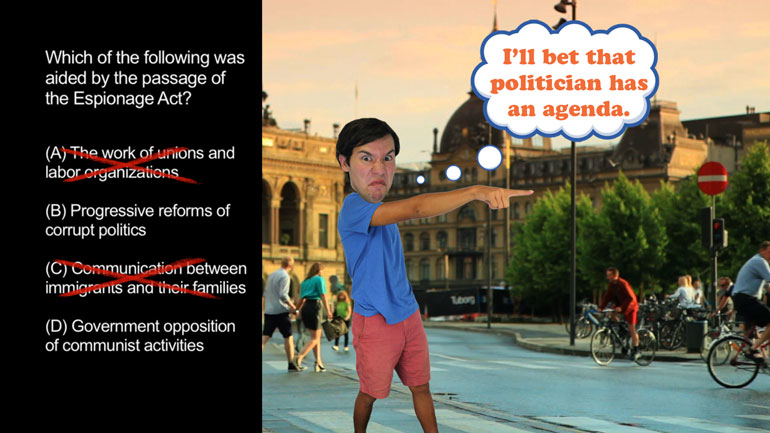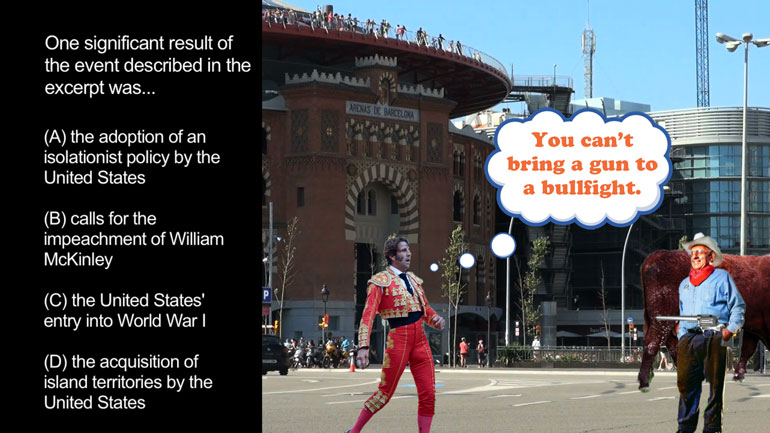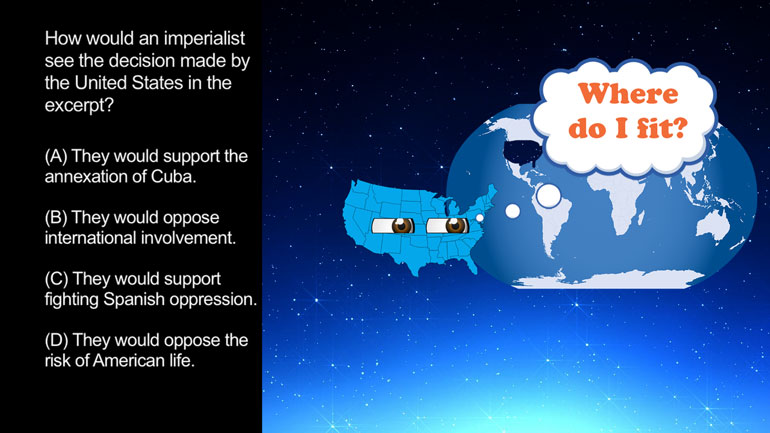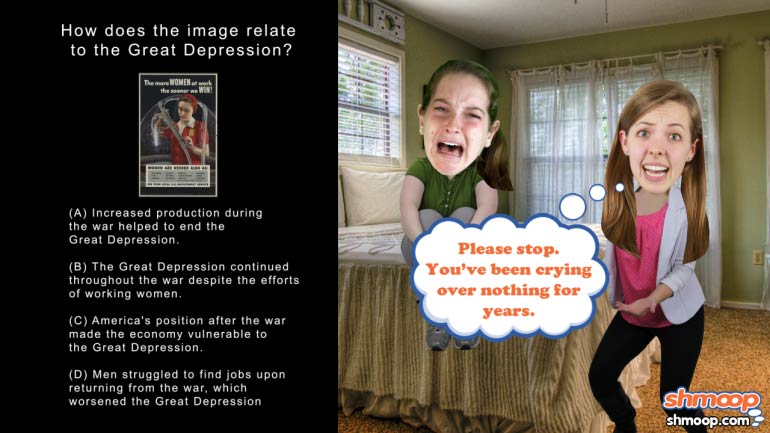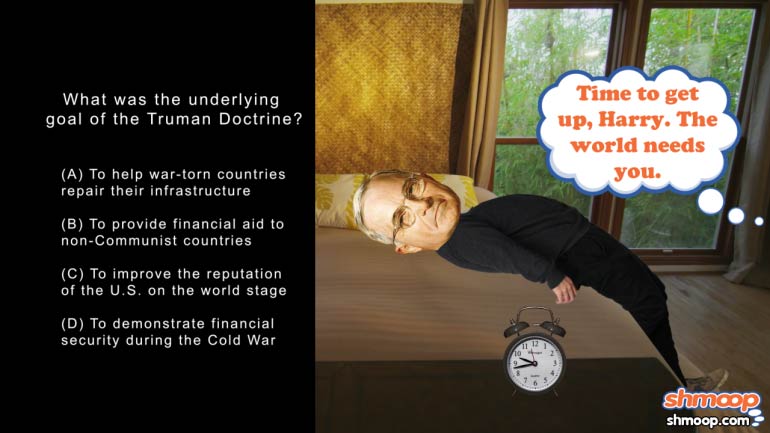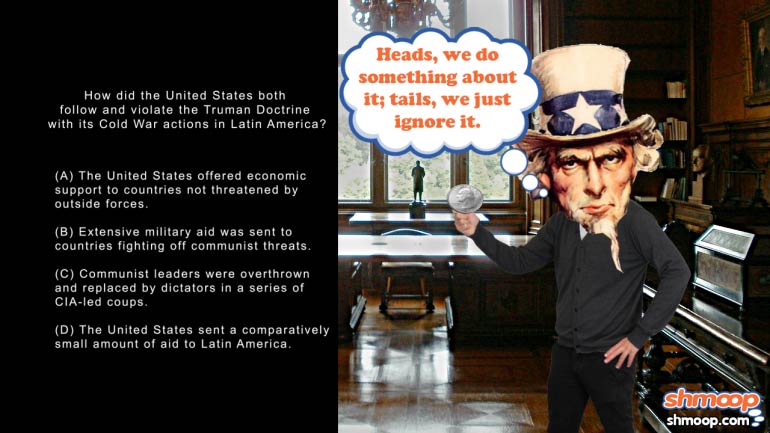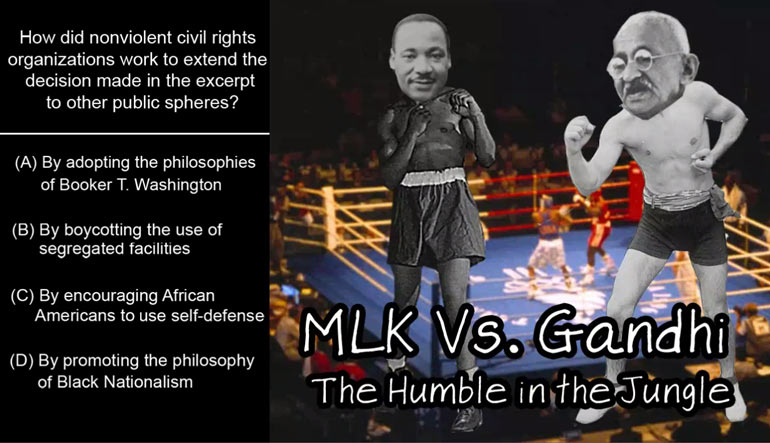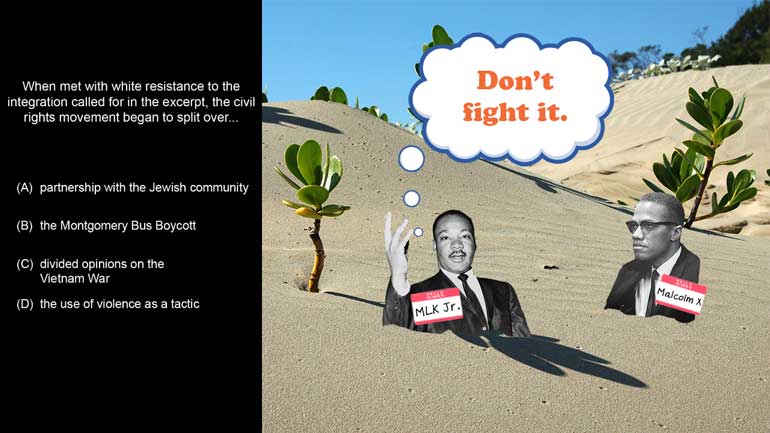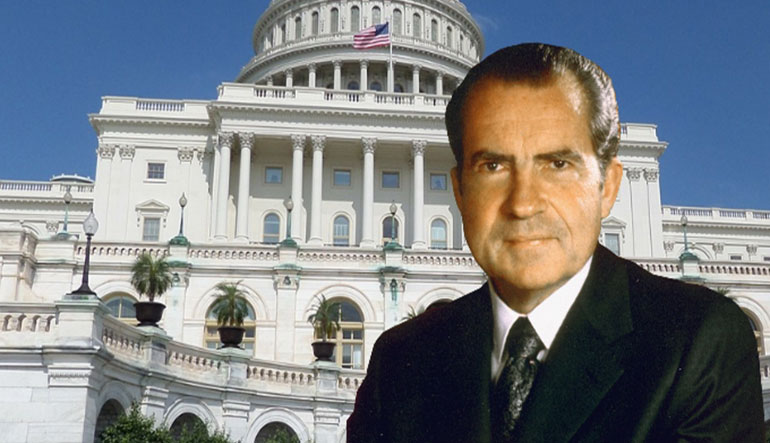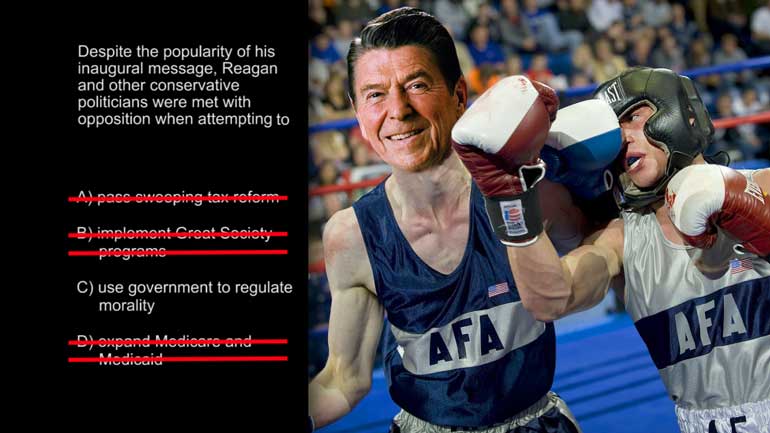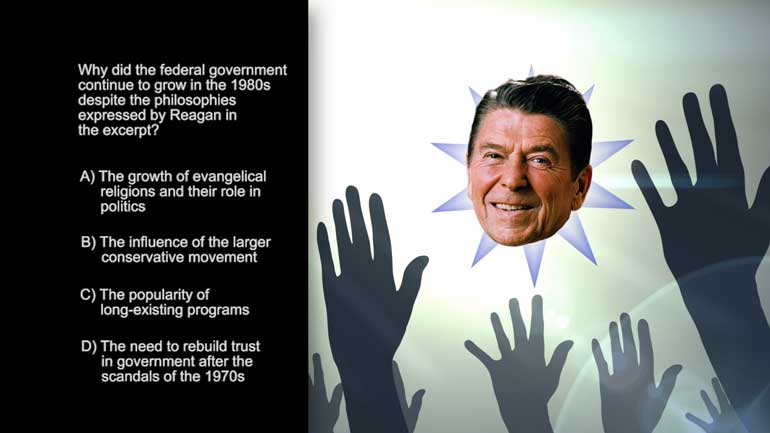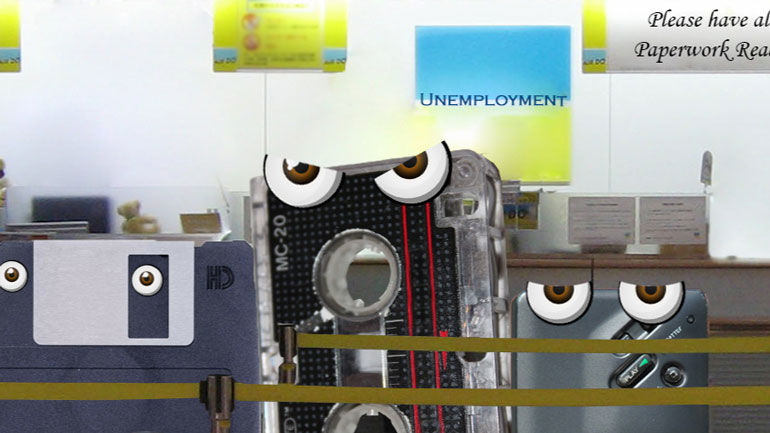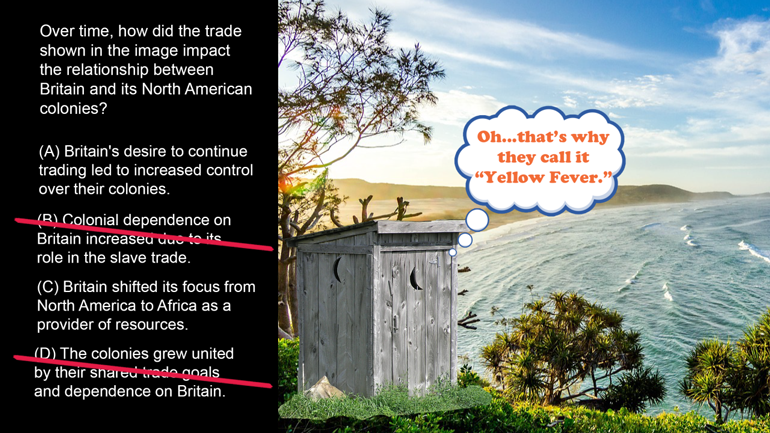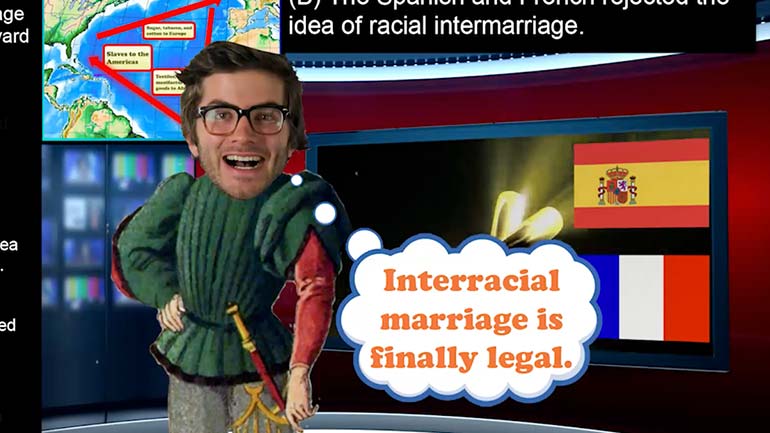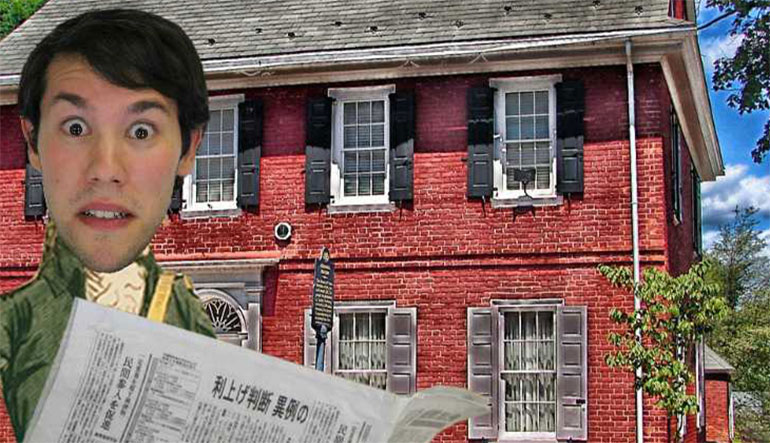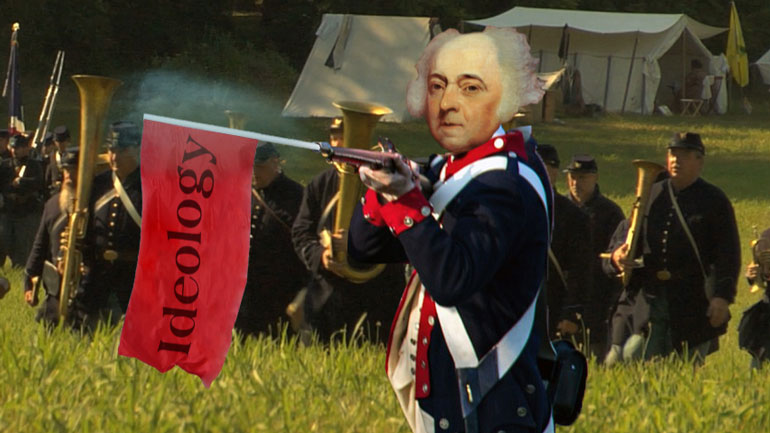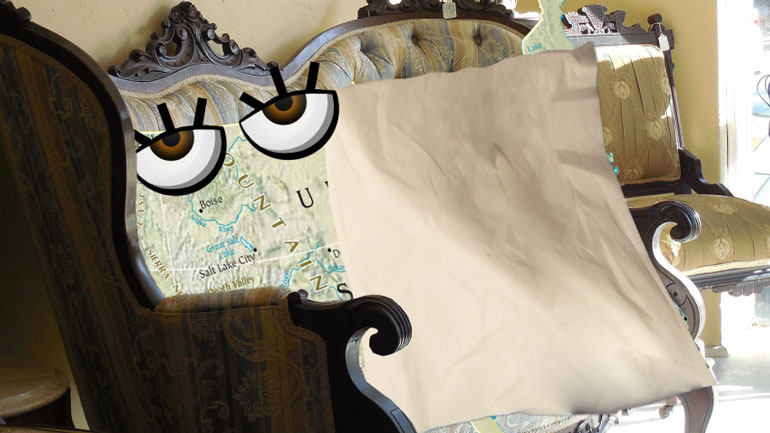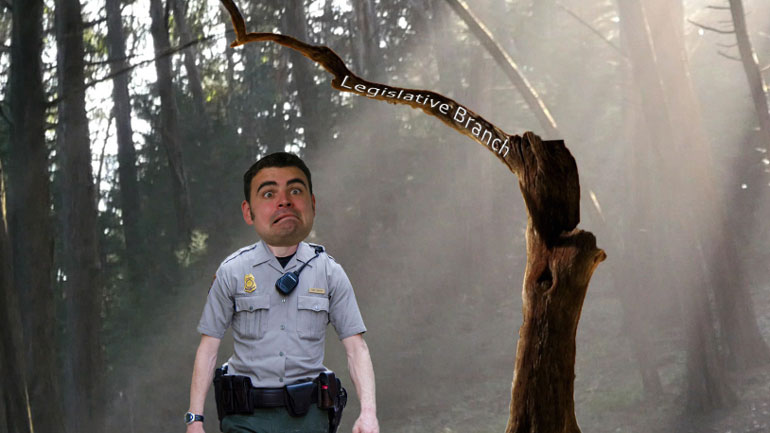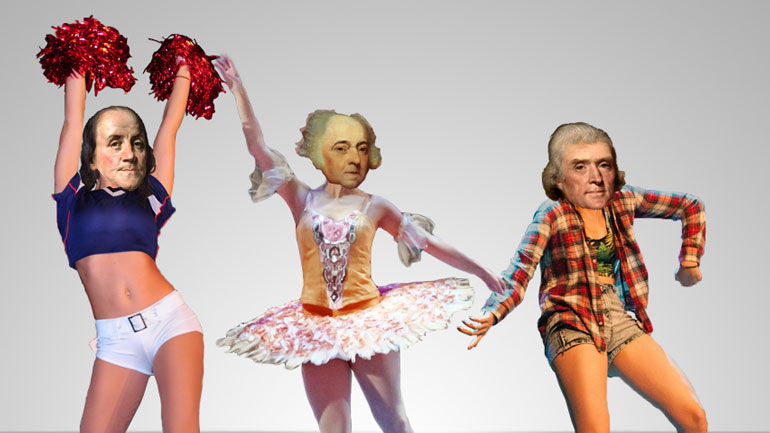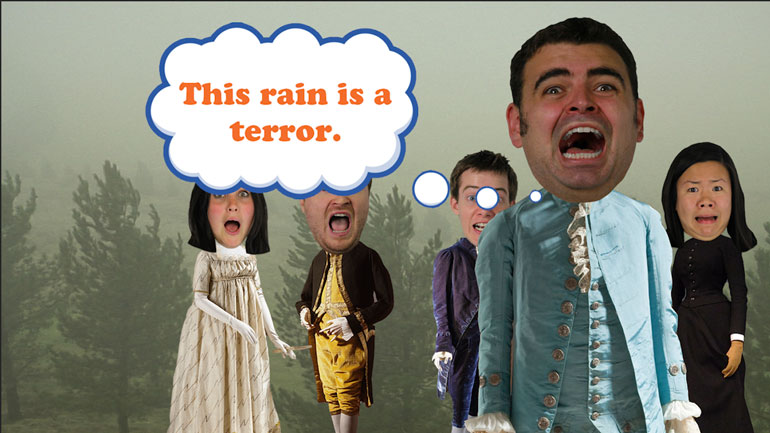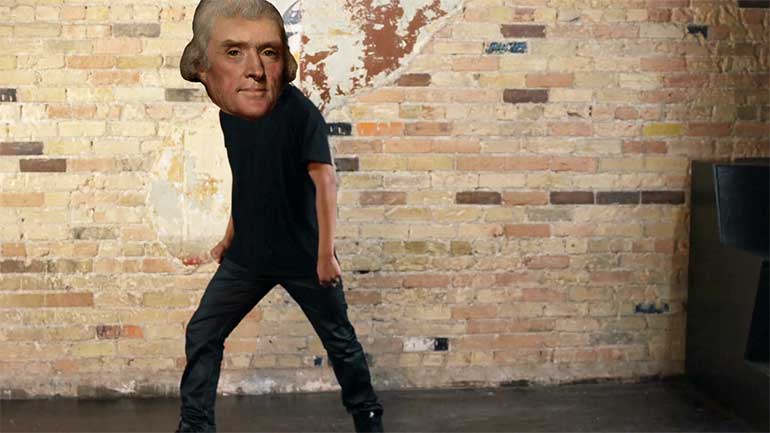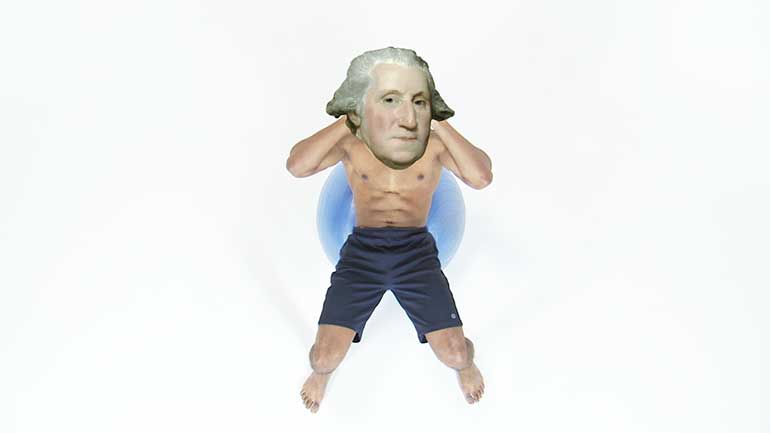ShmoopTube
Where Monty Python meets your 10th grade teacher.
Search Thousands of Shmoop Videos
AP U.S. History Videos 167 videos
AP U.S. History 3.1 Period 2: 1607-1754. Which of the following contributed most directly to the process seen in the image?
AP U.S. History Period 1: 1491-1607 Drill 3, Problem 2. The cultivation of maize, depicted in the image, also played a significant role in which of...
AP U.S. History 3.2 Period 4: 1800-1848. The goals presented in the excerpt have the most in common with which of the following?
AP U.S. History Exam 1.37 166 Views
Share It!
Description:
AP U.S. History Exam 1.37. Which of the following was aided by the passage of the Espionage Act?
Transcript
- 00:00
[ musical flourish ]
- 00:03
And here's your Shmoop du jour, brought to you by suspected leftists,
- 00:07
right-handed people with a secret.
- 00:10
First up, the excerpt.
- 00:11
[ mumbles ] All right, and the question:
Full Transcript
- 00:16
Which of the following was aided by the passage of the Espionage Act?
- 00:20
And here are your potential answers.
- 00:21
[ mumbles ]
- 00:26
All right, well during World War I, even a whisper of communism
- 00:29
was enough to send the U.S. into a tailspin.
- 00:31
Let's see what role the Espionage Act
- 00:33
played in uncovering these secrets.
- 00:35
Did the passage of the Espionage Act aid A -
- 00:38
the work of unions and labor organizations?
- 00:41
Hmm. Well, some of the labor movement's ideas
- 00:44
had their origins in communism and socialism,
- 00:46
so the constant threat of arrest under the Espionage Act
- 00:49
made things a bit more disorganized for these organized groups.
- 00:54
Same goes for immigrants,
- 00:55
especially those from Eastern Europe,
- 00:57
since they represented the big bad "other"
- 01:00
for officials fearing dissent of any kind.
- 01:03
So that's a smear against A and C.
- 01:05
Could the Espionage Act have helped B -
- 01:08
progressive reforms of corrupt politics?
- 01:11
Well, the Espionage Act encouraged a tax on
- 01:13
anyone outside moderate political lines.
- 01:16
And when reformers threatened the status quo of corrupt politicians,
- 01:19
the politicians fired back with red-hued threats of their own.
- 01:23
That's a blast against B, too.
- 01:25
Which means the passage of the Espionage Act most aided D -
- 01:28
government opposition of communist activities.
- 01:31
At the height of the first Red Scare, government officials arrested
- 01:34
anyone suspected of the tiniest association with communism.
- 01:38
And the Espionage Act justified these often
- 01:41
unjust accusations.
- 01:42
So D is the right answer.
- 01:44
Though there were definitely some leftist
- 01:46
plots against the U.S.,
- 01:48
government officials frequently used the Espionage Act
- 01:50
to drum up anti-Communist fervor,
- 01:53
creating a "my way or the spy way" kind of atmosphere.
- 01:58
[ birds chirping ]
- 02:22
[ creaking ]
Related Videos
Ever heard of a "living document"? They eat and breathe just like the rest of us! They even walk around on their own two legs. Okay, fine—maybe t...
If the Puritans had gotten their way, religion would play a much larger role in lawmaking these days. Want to know more? Watch the video for all th...
What happened between the creation of the Articles of Confederation and the ratification of the current U.S. Constitution? This video analyzes the...
The Modernists thought the world had a lot of problems, and they were intent on fixing them—or at least talking about fixing them. Unfortunately,...
This video explains Federalism and the quest for a fair balance between state and national power. It covers the progression and compromises of Fede...



